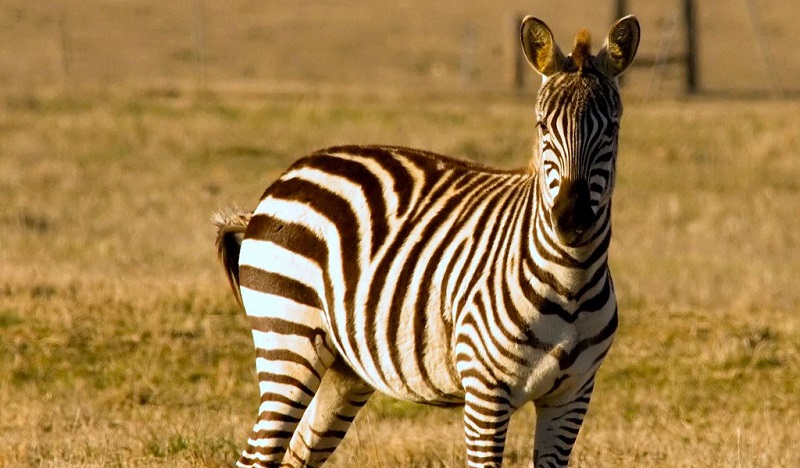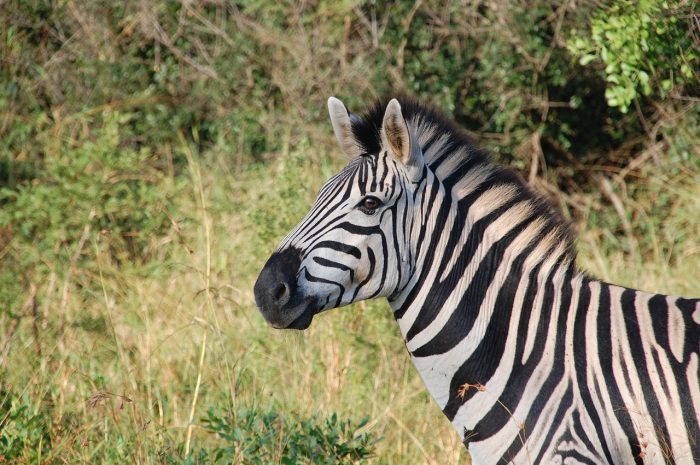Zebras belong to the equine family and are subdivided into three: the plains zebras, the mountain zebras, and the Grevy’s. The plains zebras are the most abundant in Africa, and also the smallest, while the Grevy zebras are the largest and also have finer stripes.
It has been confirmed by experiments with embryos that the base color of zebra fur is black, which is why they are black with white stripes.
Zebras tend to move in herds to distract predators. These, by the repetitive pattern of the fur of the zebras, think that they are before a larger animal and flee, at least until they realize that their eyes confused many zebras.
First of all, we must know that zebras are strict herbivorous animals, consuming all kinds of herbs that they find in their path. However, to better understand their diet, it is necessary to know a little about their environment and their way of obtaining food.
WHERE DO THEY GET FOOD?
Zebras are found in Africa, which is why we know that they generally adapt to arid and flat climates.
They usually move in herds and have the ability to migrate in dry seasons to get a source of water. Zebras can travel approximately 20 km in a day in order to get food, returning to their starting point at night to rest. The most curious thing is that the next day, they start at that same point, as the herd plans to do the same route again.
The fact of walking until they get food is something that benefits them compared to other animals, which can even starve in such inhospitable climates.
A curious fact about their diet is that they eat only in the mornings and afternoons. In periods of extreme heat, such as midday, they remain resting under the shade of trees or taking mud and mud baths.
You may also like to read, can cats eat yogurt. To know more visit our Blog http://equalityalabama.org/.
DO ZEBRAS EAT ONLY GRASS?
Being strict herbivorous animals, their diet is mainly based on the grass they can find. However, in addition to that, they can eat branches of small shrubs, small shoots, and even bark of some trees.
The incredible adaptation that their digestive system had (although it is not one of the best in the animal kingdom) allows zebras to absorb all the nutrients they receive from the plants they consume. Another benefit that zebras get thanks to their digestive capacity is to carry out their daily tasks with a low energy requirement. This allows them to go long periods without food compared to other animals.
However, the plants that zebras feed on are rich in fiber, but poor in nutrients, which forces them to constantly feed and therefore roam the territory throughout the day in search of food.
In addition to food, zebras are always looking for a source of water. If they get a good source, they usually settle there for a time, which allows them to survive.

